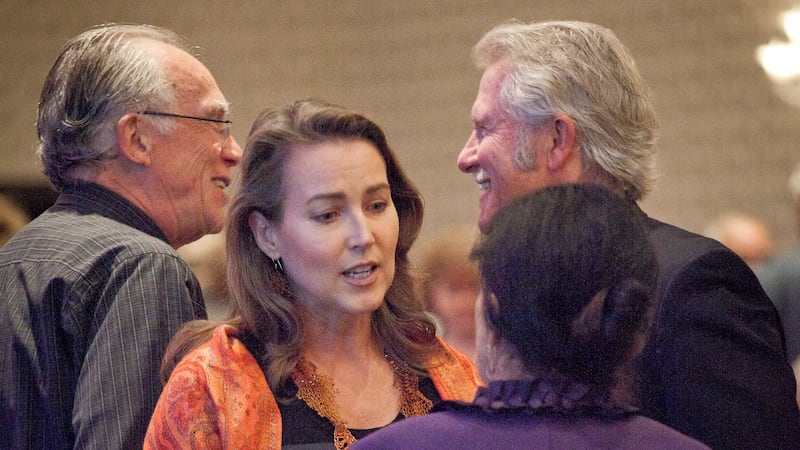The Oregon Government Ethics Commission today released the findings of its investigation of a 2014 complaint against former first lady Cylvia Hayes.
The investigation found evidence to sustain the complaint, filed by former state Rep. Vicki Berger (R-Salem). Berger's complaint stemmed from a WW cover story that detailed the ways in which Hayes private consulting business overlapped with her official duties as an advisor to her fiance, then-Gov. John Kitzhaber.
Here's a summary of what the 154-page document says:
"A review of available information indicates that Ms. Hayes solicited paid contracts using her official position in the Office of Governor and the access it provided her, used her official position in the Office of Governor to accomplish the deliverables on her paid contracts and used the resources of the Office of Governor to obtain a financial gain or avoid a financial detriment by using staff time and resources for her personal business," the investigation found.
"The available evidence indicates that Ms. Hayes made decisions in her official capacity that could have affected her personal financial interest when she made decisions about speeches, meetings and policy that she used to obtain and complete paid contracts," the investigation report continues.
"There is sufficient evidence to indicate that Cylvia Hayes committed violations of ORS 244.025 by accepting a gift from a source with legislative or administrative interest in her decision-making as a public official, that she committed violations of ORS 244.040(1) by using her official position for personal financial gain, and that she committed violations of ORS 244.120(1)(c) by failing to properly handle potential conflicts of interest."
A central dispute since WW first reported on Hayes' activities in 2014 was whether, as first lady, Hayes was a "public official" under Oregon law and thus subject to state ethics laws. Hayes and her attorneys have taken the position that she was not a public figure.
Echoing the earlier determination of a Marion County judge, however, the ethics investigation found that because she acted as an official advisor to Kitzhaber; engaged in policy-making and exercised authority over public employees, she was indeed subject to ethics laws.
"It appears that Ms. Hayes was a public official serving the State of Oregon during the time period when she was serving as a policy advisor and First Lady for the Office of Governor," the report says.
As part of the investigation, Hayes, through her attorney, denied any wrongdoing. A federal investigation into whether Kitzhaber or Hayes had broken any laws ended last year with no charges being filed.
The Ethics Commission will consider its staff investigative findings at its meeting on Jan. 5. It is up to the commission to determine next steps, including whether to levy a fine against Hayes. In an unusual action in its November meeting, the Ethics Commission rejected a proposed settlement with Kitzhaber which would have allowed him to end an investigation into whether he failed to properly handle Hayes' conflicts of interest by paying a $1,000 fine. That case remains unresolved.
Berger, the former state representative who filed the original ethics complaint against Hayes, says she feels satisfied with the state's investigation.
"I think they did a good job and their findings affirm there were violations," Berger tells WW. "Now it's in the hands of the Ethics Commission and it's up to them to assign appropriate sanctions."
Hayes could not immediately be reached for comment.
